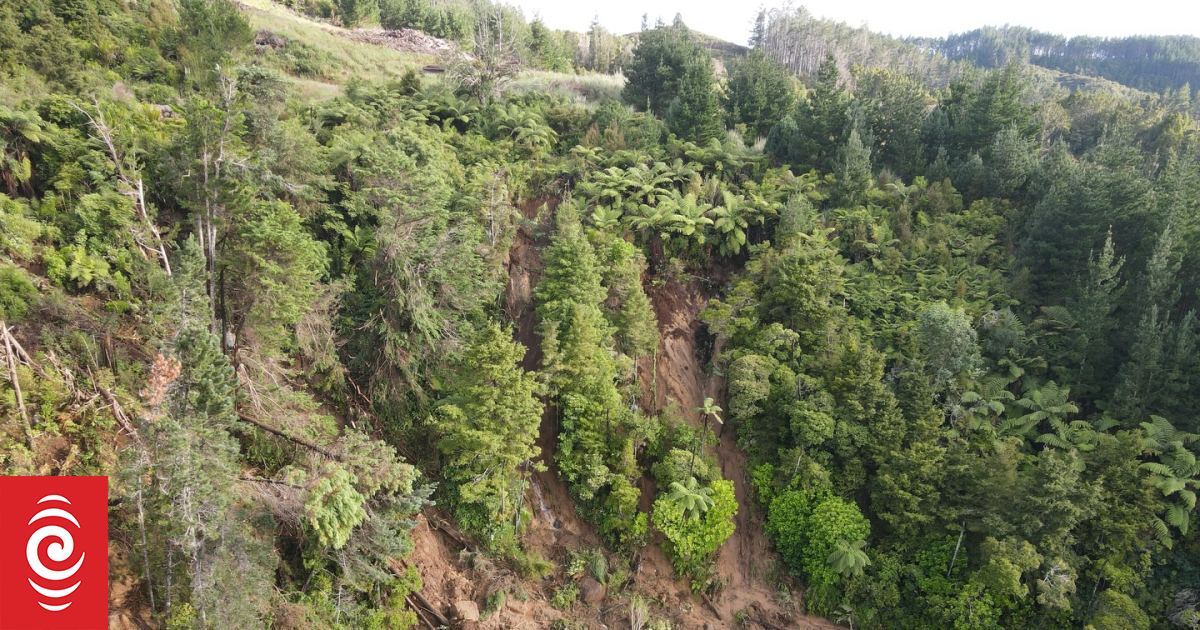The late Erima Henare speaks at Waitangi during the handover of stage one of Te Paparahi o Te Raki in 2014. Photo / Michael Cunningham
A landmark Waitangi Tribunal report is calling on the Government to return all Crown-owned land in an area covering much of Northland and to start talks with Māori about reworking the country’s constitutional makeup.
The
almost 2000-page report released on Friday is the result of 26 weeks of hearings spread over five years, from 2013-17, and a staggering 500,000 pages of evidence from 415 claimants.
It deals with the period 1840-1900 and is only the first part of stage two of a wide-ranging inquiry called Te Paparahi o Te Raki (“The Great Land of the North”).
The momentous stage one, which was completed in 2014, examined the 1835 Declaration of Independence and the 1840 Treaty of Waitangi, and found Ngāpuhi chiefs never ceded sovereignty.
Stage two examined specific claims in a wide area covering much of the east coast from Auckland’s North Shore to Whangaroa as well as Hokianga, Bay of Islands, Whangārei and Mangakāhia.
Most claimants were Ngāpuhi but Ngāti Whātua, Ngātiwai and others were also represented.
Waitangi Tribunal rulings carry moral authority but are not binding on the Government.
In his preface to the report, presiding officer Judge Craig Coxhead said fulfilling some of the recommendations would require the kind of power-sharing envisaged in Te Tiriti.
Advertisement
“We have no doubt this process will be challenging for the Crown, but undertaking it in good faith is essential if the Treaty partnership and the Crown’s own honour is to be restored,” he said.
In short, the tribunal calls on the Crown to apologise to Te Raki (Northern) Māori for:
• failing to recognise and respect the tino rangatiratanga (sovereignty) of hapū and iwi;
• imposing a legal system that overrode tikanga;
• failing to address the “legitimate concerns” of Ngāpuhi chiefs after they signed Te Tiriti, leading to the Northern War of 1845-46;
• “egregious conduct” during the Northern War;
• imposing policies and institutions designed to “wrest control and ownership of land and resources” from Māori;
• refusing to give effect to Treaty rights within New Zealand’s political institutions and constitution.
Advertisement
The tribunal also calls on the Crown to:
• return all Crown-owned land within the inquiry district to Māori ownership;
• provide “substantial further compensation” to restore the economic base of hapū and as redress for economic losses caused by Treaty breaches;
• enter discussions with Te Raki Māori to “determine appropriate constitutional processes and institutions at national, iwi and hapū levels to recognise, respect and give effect to their Tiriti/Treaty rights”.
/cloudfront-ap-southeast-2.images.arcpublishing.com/nzme/XHOCNVHIZJEPBGMSW3BAWGHNV4.JPG)
Much of the report’s 1926 pages detail specific examples of land loss and military action, and the erosion of tribal structures despite Māori efforts to maintain rangatiratanga and political engagement.
It also identified extensive breaches in the way the Crown conducted land transactions and found the Native Land Court had undermined hapū.
“The Tribunal found the Crown’s 19th century land policies inflicted deep and enduring damage on Te Raki Māori, and noted the district remains one of the most economically deprived parts of New Zealand today,” the report’s authors said.
“Overall, the Tribunal found the Crown overstepped the bounds of its kāwanatanga (governorship) in Te Raki between 1840 and 1900.”
/cloudfront-ap-southeast-2.images.arcpublishing.com/nzme/2TBLYHOLZZHSVE6MDHSIAQBJAM.JPG)
Ngāti Hine leader Pita Tipene, co-chairman of the hapū group Te Kotahitanga, described the report as “hard-hitting” and “history-defining”.
He had been worried the tribunal would water down its recommendations.
“Instead I have been pleasantly surprised that the people’s voices, the voices of the hapū of Ngāpuhi, have been heard. It brings honour to Te Tiriti and He Whakaputanga (The Declaration of Independence) which has sadly been lacking because the Government in its various guises has been in denial.”
He was also pleased the consequences of the Northern War, and the Crown’s “absolutely terrible” conduct at that time, had been clearly laid out.
The important question now, Tipene said, was “what next?”
Fulfilling the tribunal’s recommendations would require discussion between Māori and the Crown, and a genuine process that could be worked through over time.
Despite the current pushback against co-governance, Tipene believed constitutional change was “absolutely doable” — but had it be well-considered and incremental.
“Our country is already going in a direction that will give effect to what the signatories signed in 1840. Certainly there will be fear but there needn’t be, because we are all working in the best interests of the country.”
He hoped the report would be formally handed over at Waitangi as was done with stage one in 2014.
That would also honour those who had contributed — such as Erima Henare, Nuki Aldridge and Oneroa Pihema, and tribunal members Ranginui Walker and Kihi Ngatai — but had passed away without seeing the finished report.
Tipene said the report vindicated Te Kotahitanga’s push for a full hearings process at a time when other factions within Ngāpuhi, and especially the Government, wanted to skip the hearings and go straight to settlement negotiations.
“We can now look back and say it was the right thing to do. You can grab the money and run but it’s about much more than that. Mana is crucial.”
/cloudfront-ap-southeast-2.images.arcpublishing.com/nzme/YM2GJ2JOLNDIXBMDTXSQ7OE3EY.JPG)
Treaty Negotiations Minister Andrew Little is on leave but a Government spokesperson said the Crown welcomed the report.
“We will now carefully review and consider the tribunal’s findings.”
Part two of stage two will cover the 20th century. A completion date is not yet known.
The first claim in the Te Raki district was lodged in 1985 in relation to rates. The second, by the late Sir James Henare in 1988, concerned the Taumarere River. In total 415 claims were considered.
Ngāpuhi is the country’s biggest iwi and the only major tribe which has yet to settle.



